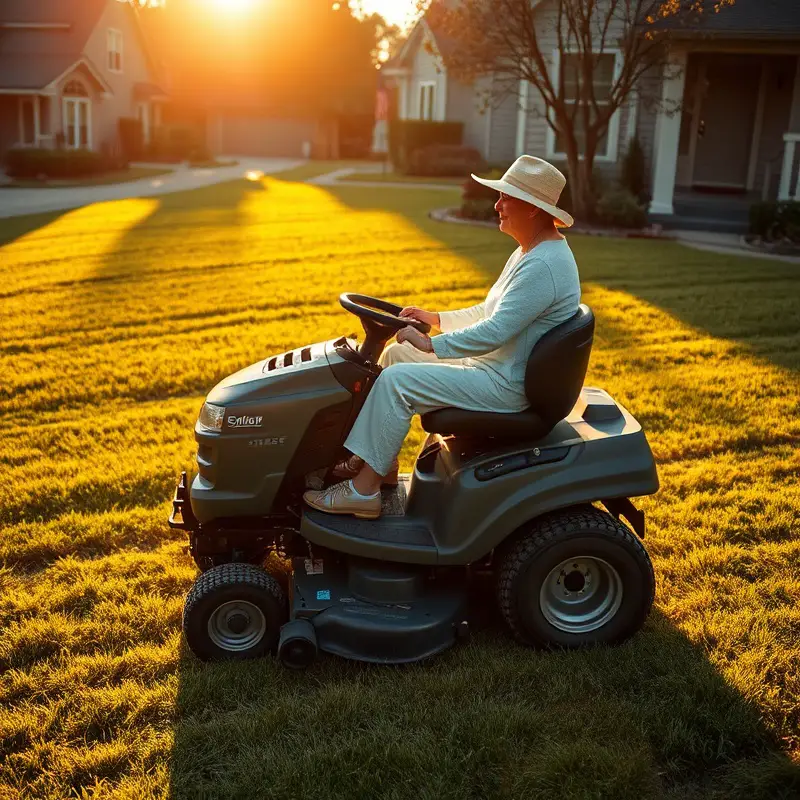Making Lawn Care Easier in the Golden Years
For many seniors, tending to a lawn remains a beloved pastime. But as physical abilities change with age, what was once effortless can become a bit more demanding. That’s why it’s essential to adapt lawn care routines to meet new needs—without compromising the satisfaction that gardening brings.
Common Challenges for Older Gardeners
Understanding the specific challenges seniors may face is the first step toward finding the right solutions:
Mobility limitations: Tasks like bending, lifting, or kneeling can become more difficult over time.
Reduced stamina: Prolonged activity in the yard may feel tiring or even risky.
Cognitive changes: Remembering watering schedules or plant types might not be as simple as before.
This guide offers strategies to address each of these challenges with smart, manageable alternatives.
Tools That Make Gardening Easier
One of the easiest ways to make lawn care more senior-friendly is to use ergonomic, lightweight, and efficient tools.
Ergonomic garden tools: Specially designed handles and grips reduce joint stress and provide better control.
Cordless electric mowers and trimmers: These are lighter and easier to maneuver than traditional gas-powered models, with less noise and maintenance.
Garden kneelers with handles: These help reduce strain on knees and assist with standing up after gardening.
Using the right tools not only saves time but also makes the process far more enjoyable and safe.
Senior-Friendly Gardening Techniques
With a few thoughtful adjustments, gardening can be both beautiful and low-maintenance. Here are a few ideas to consider:
Raised Garden Beds
Installing raised beds helps reduce the need to bend or kneel. They’re perfect for growing flowers, vegetables, or herbs, and can be customized to the right height for comfort.
Mulching and Ground Cover
Using mulch or ground cover plants minimizes the need for frequent weeding, retains moisture, and gives your yard a tidy, cared-for appearance with minimal effort.
Seasonal and Native Planting
Planting flowers or shrubs that thrive in your region and require little upkeep ensures a vibrant yard year-round. Focus on low-maintenance, drought-resistant plants that naturally suit your climate.
The Hidden Benefits of Lawn Care
Gardening isn’t just good for your yard—it’s good for your health, too. Studies have shown that regular gardening can help:
Reduce stress: Spending time outdoors, caring for plants, and enjoying fresh air offers mental clarity and peace.
Encourage physical movement: Light activities such as planting or watering help keep joints and muscles active.
Boost mood and purpose: Watching your efforts bloom into a colorful yard fosters a sense of pride and accomplishment.
Creating an Enjoyable Routine
To avoid overwhelm, it’s important to develop a sustainable routine. Seniors can benefit from:
Daily or weekly schedules: Short, regular sessions are easier to manage than long, exhausting gardening days.
Asking for help when needed: Family members, friends, or local gardening services can assist with heavier tasks like trimming trees or mowing large areas.
Joining community garden groups: These offer both social connection and shared gardening responsibilities.
Final Thoughts: Gardening with Confidence and Joy
A well-maintained yard brings beauty to your home—and joy to your life. With smart planning and the right equipment, seniors can continue to enjoy their gardens while avoiding physical strain. Whether it’s a small flower bed or a full lawn, the sense of peace and pride that comes from nurturing nature is always worth the effort.

